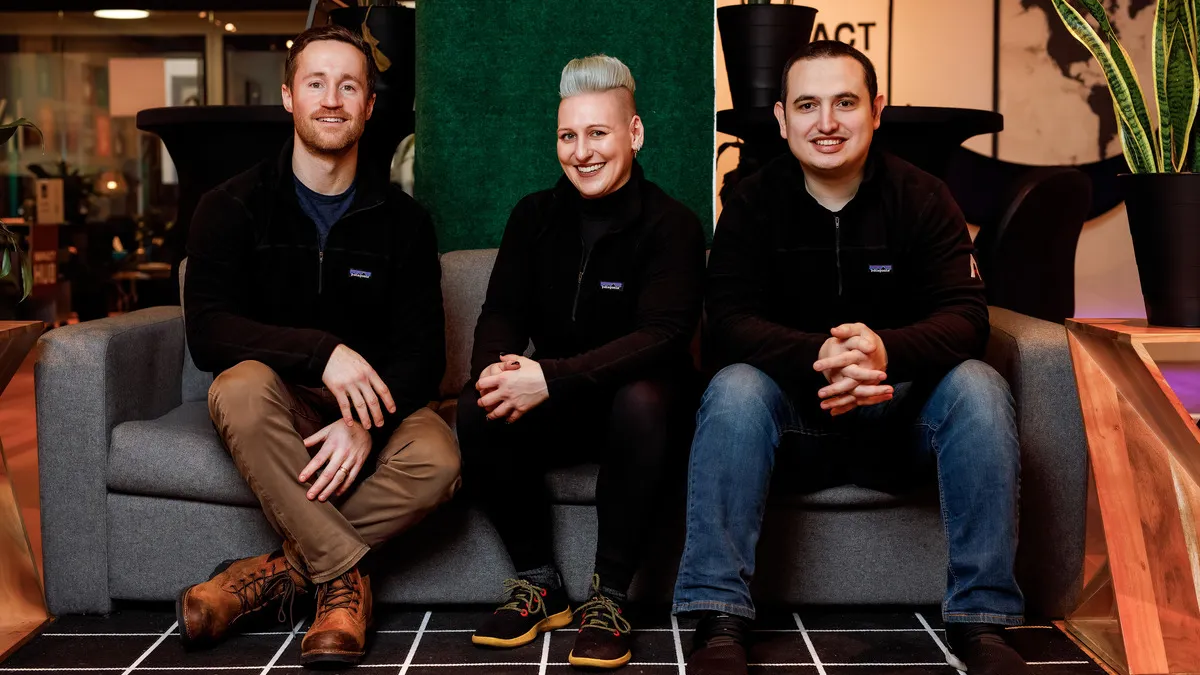Roughly 300,000 international students come to the U.S. annually in pursuit of education.
The challenges they face don’t end with simple homesickness or cultural differences: Without a Social Security number or U.S. credit history, these students face barriers in accessing basic banking services, which in turn make it harder to find an apartment, rent a car or pay for living expenses.
Adro, a New York-based fintech offering financial services to U.S. newcomers, recently raised $1.5 million in pre-seed funding to address this issue.
CEO and co-founder Amarildo Gjondrekaj caught wind of the issue’s prevalence as a professor at multiple New York area universities.
With a little digging into his contacts in the payments and banking space – he’s a payments vet with nearly seven years at Mastercard and another two at Harness, a nonprofit-focused fintech – Gjondrekaj found the issue at hand was an “information asymmetry problem.”
“Internationals moving in [are accompanied by] all of this data. They're some of the most vetted people on Earth as they get their visas through, but this information just never makes it to anyone else,” he said. “It doesn't make it to the banks. It doesn't make it to the tech companies. It sits with the university. It sits with the State Department on the visa side. There’s this giant information gap.”
Gjondrekaj co-founded Adro with Sara Schmitt, formerly of Amazon and Epic, and Kevin DeArmond, formerly of Uber and Titan, to bridge the gap so that when the student arrives, their accounts can immediately be activated, allowing money to move easily and for them to build a credit file.
Adro partners directly with universities to get international students up to speed 90 days prior to arrival. The schools “have a vested interest in their success ... to make life easier [as] they on-ramp America,” Gjondrekaj said.
International students are a common target for financial scammers, he noted, so the schools and Adro also co-created education materials to arm them against crooks. (Immigration, they inform the students, is never going to call you. Neither will the State Department. Those are scammers.)
Through a partnership with Stearns Bank, Adro can provide students with a debit account and a secure credit product.
“This is an area of focus for them, supporting underserved unmet market needs,” he said of Stearns, adding that they’re “really, really good people to work with” who understand the clients and the compliance component of working with international account holders.
“One of our hero features ... is we're looking to reimburse the international fee of the transfers,” Gjondrekaj said. “We do not want to make money on international cross-border transfers. We're not going to upcharge anything on international transfers, and we're looking to actually reimburse what they pay their banks on a monthly basis back to the consumer.”
“We're trying to be one of the most efficient and effective ways for them to move money into the U.S. in a very, very, very cheap and efficient way,” he said.
Adro also seeks to be a conduit for U.S. newcomers to access other necessary products and services, things Adro won’t be in the business of offering, but will link students to through what it’s dubbing an “international onboarding welcome kit.”
“We know that as you arrive, these are the two dozen things that you may need. You're probably going to need a SIM card, you're probably going to need your first internet at home. You may need renter's insurance,” Gjondrekaj said. “Here are the trusted partners that we have worked with that know this area well that can also work with you even though you don't have an SSN or credit file.”
The pre-seed funding, which was announced Tuesday and led by Era with participation from Ex Nihilo Ventures and the Cornell Tech Syndicate, will go toward hiring engineers, Gjondrekaj said.
He expects internal testing to begin in a few weeks, with friends and family testing slated for May and go-live scheduled for July 1 ahead of the start of the school year.














